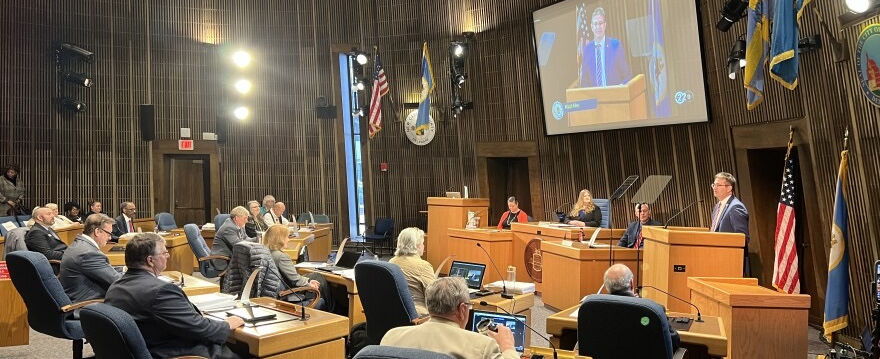“It Wasn’t a Tax Hike. It Was a Trust Breach.”
They said services would be cut. I read the budget. I saw the truth. And I voted no.

In 2018, the County Executive proposed a 15% property tax increase—spread over two years. The reason? We were told the County was facing a financial crisis so severe that critical services—EMS, police, libraries, paramedics—would be cut unless taxes were raised.
It wasn’t true.
As Council President, I read every page of that budget. I didn’t rely on headlines or talking points. I asked the hard questions: Where were the reserves? What had changed in our revenue forecasts? What was the long-term fiscal impact—not just politically, but structurally?
Here’s what I found: the services were never going to be cut. Not one. The real issue wasn’t a lack of money—it was a lack of priorities. The budget had been padded with new spending and pet projects that had nothing to do with protecting public safety or essential services.
And behind the scenes, there were reserves—over $42 million in the General Fund—set aside precisely for situations like this, to bridge shortfalls and prevent panic decisions. That money was there. But instead of using it as intended, the administration used fear. And fear became leverage. They said, “We have no choice.” I said, “We absolutely do.”
The proposed tax increase would have raised property taxes by 7.5% in the first year, and another 7.5% in the second. For the average homeowner, that meant paying just over $100 more per year—every year—without any real improvement in services or infrastructure. And once that money was in the system, it was gone. There was no sunset.
No accountability. Just more pressure on working families to pay for a government unwilling to tighten its own belt.
I worked to scale down the increase. I tried to find common ground. But when it still didn’t add up—when the numbers and the narrative didn’t match—I stood firm and voted no.
Because this wasn’t just about taxes. It was about trust.
And let’s be clear: this wasn’t 2008. It was 2018. The economy was strong, unemployment was low, revenues were up. There was no recession. No emergency. Just a government unwilling to make tough decisions about what mattered—and what didn’t.
Raising taxes should be the last resort. Not the first reflex.
I believed that then. I still do.
– Karen Hartley-Nagle
Former President, New Castle County Council (2016-2024)